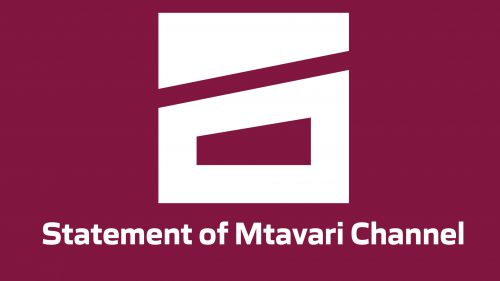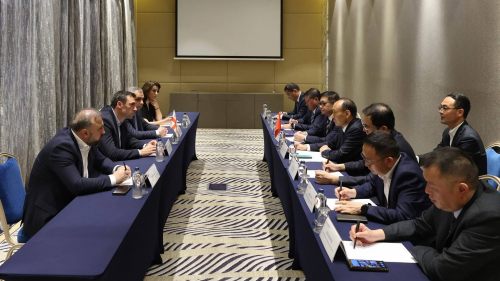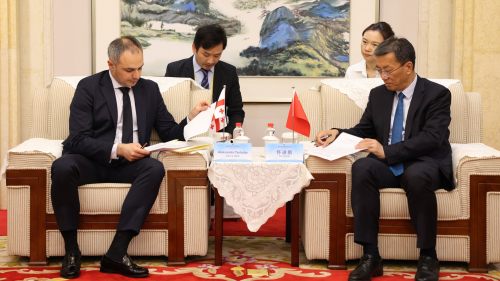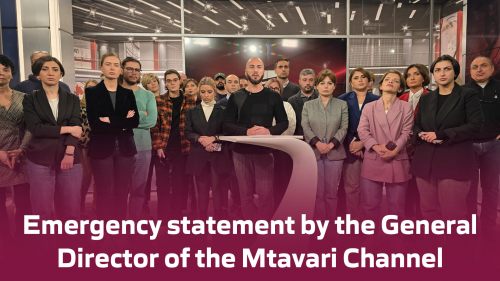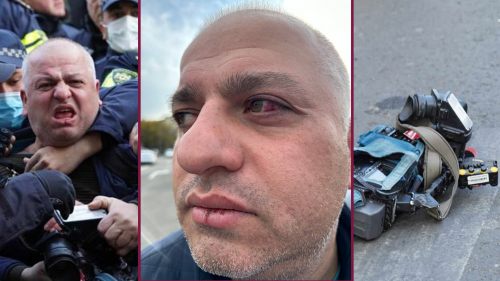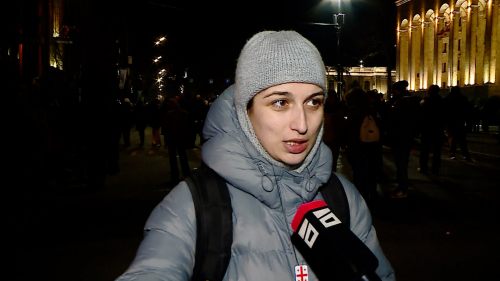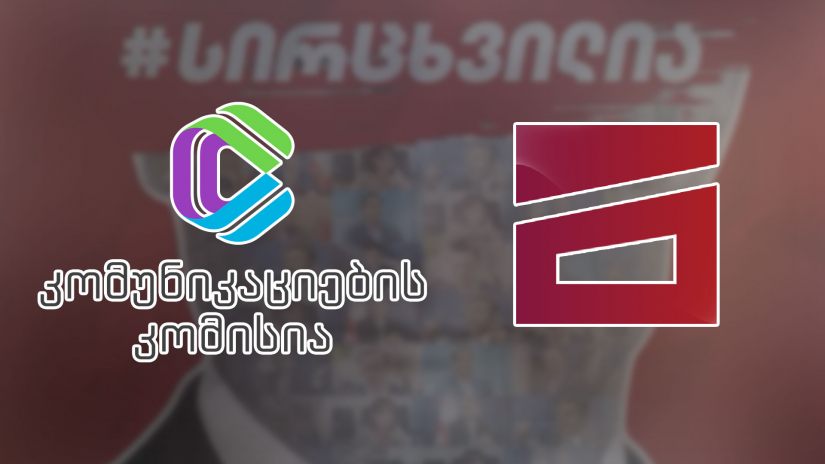
The National Communications Regulatory Commission accuses the "Mtavari Channel" of bullying and threatening this time. This is stated in the statement issued by the commission a few minutes ago.
We offer the statement unchanged:
The Communications Commission issued a statement regarding the decision taken against the Mtavari channel, which was followed by politicized and baseless accusations from the channel.
The management of Mtavari channel tries to mislead the public as if the Commission's decision of November 25, 2021 to impose a fine on Mtavari channel restricts the freedom of speech and expression.The statement of the management of the channel that the Commission had no legal basis for imposing a fine on the channel is false, categorically unacceptable and inadmissible are statements of representatives of the Mtavari Channel, threatening and bullying members and employees of the Commission.
Obviously, this serves to impede the professional activities of the Commission's staff and discredits the Commission as a government agency. We emphasize that such attempts will not prevent the execution of the law and will not affect the decisions of the Commission.
The Law of Georgia on National Regulatory Bodies prohibits improper influence, unlawful interference, or any other influence on the plans, beliefs, decisions, activities or inactivities activities of a commissioner or a member of the administrative staff of the National Regulatory Body.
Improper impact and unlawful interference are defined as the impact, obstruction or other influence on the outcome of considerations and decisions of the National Regulatory Body in order to derive a benefit or privileged treatment. The actions and statements of the representatives of "Mtavari Channel" contain signs of attempted misconduct prohibited by law, which is categorically unacceptable.
The decision of the Communications Commission of November 25 to hold the Mtavari Channel liable is fully consistent not only with Georgian law, but also with international practice, including the decisions of the European Court of Human Rights in Strasbourg.
We call on international partners to follow this process closely. All of the Commission's decisions are open and accessible, but the Commission is ready to provide additional information to interested stakeholders about the standards used and the legal framework. At the same time, we call on international organizations not to ignore the facts of massive threats and attempts of intimidation by the management of Mtavari Channel against the independent regulator and its staff.We would like to remind you that the Mtavari Channel broadcasted political advertising in violation of the law at a time when the TV company was not allowed to broadcast political advertising. The legislation in force defines in detail the time and conditions for political advertising on TV channels. In particular, paragraph 1 of Article 50 and paragraph 21 of Article 761 of the Organic Law of Georgia "Election Code of Georgia" precisely define the time period during which political advertising is allowed.
According to the above, political advertising can be placed only during the pre-election period. In particular, the placement of advertising must begin 50 days before the voting day and must end 8 hours before the voting day, and in the case of the second round - from the Monday following the day of the appointment of the second round and must end 8 hours before the voting starts. This record very clearly and unambiguously establishes when and for how many days a broadcaster can air political advertisements.
The Commission established that Mtavari Channel had placed political advertisements during the non-election period. It is noteworthy that the "Mtavari Channel" has committed a similar violation for the fourth time in general, and twice in the last one year. That is why, according to the law, the broadcaster was fined 1% of its annual income.
In interpreting political advertising, the Commission is guided by Georgian legislation and international practice, because according to Article 3, paragraph 2 of the Law of Georgia on Broadcasting, broadcasting legislation must be interpreted in accordance with the European Convention for the Protection of Human Rights and Fundamental Freedoms, with the case law of the European Court of Human Rights and other international legal norms that are legally binding for Georgia.
One of the most visible examples of international practice is Ireland where political advertising is completely banned. The Irish Media Regulator (BAI) [1] in 2016 reviewed an advertisement by the Irish Wind Energy Association (IWEA) and considered that it served political purposes. In particular, the advertisement focused on the advantages of wind energy and the importance of its more active use for Ireland's energy independence.
The BAI regulator stated that the video was aimed at criticizing Ireland's energy policy, with ads promoted in the run-up to the general election, and while wind energy and recycled energy (renewable) are commercial issues, these issues were discussed in the run-up to the election and were political in nature.
There are numerous examples in Europe of local regulators banning the distribution of political advertisements, including those produced by non-political parties. Among them are those that have subsequently passed the control of the Strasbourg Court.
It is the achievement of the goals recognized by the European Court of Human Rights that the norms established by Georgian legislation and their definition serve, according to which political advertising is prohibited in the non pre-election period, while in the pre-election period it is subject to proper regulation. which balances the negative influence of powerful groups, protects free pluralistic debate and prevents polarization of society.
Finally, freedom of speech and expression is fully protected by Georgian law, the Communications Commission as an independent media regulator in the country has been and will be the guarantor of freedom of speech and no politicized and unsubstantiated statements, accusations, threats can change this fact. It is as a result of the state liberal media policy that Mtavari Channel itself became a national broadcaster in 5 days," the statement reads.



